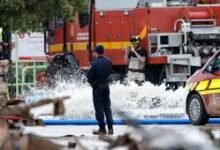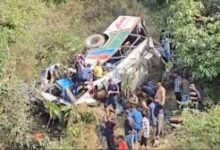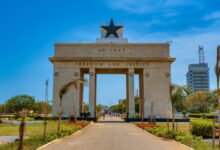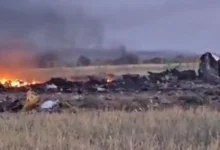Sri Lanka gets new president opposed by many

Sri Lankan Members of Parliament (MPs) have elected Prime Minister Ranil Wickremesinghe as the country’s new president, despite his unpopularity with the public.
Mr Wickremesinghe was faced the task of leading the country out of its economic collapse and restoring order after months of mass protests.
He roundly defeated his main rival for the job, Dullus Alahapperuma, with 134 votes to 82 in a parliamentary vote.
Sri Lanka’s ex-president, Gotabaya Rajapaksa, fled the country last week.
He bolted to the Maldives and then Singapore after thousands of protesters stormed his presidential residences and other government buildings, calling for his resignation.
They had also called for the resignation of Mr Wickremesinghe, a close ally of the Rajapaksa political family who was appointed prime minister in May.
Protesters last week burnt down his private home and also stormed his prime ministerial office in Colombo in demonstrations against his leadership.
On Wednesday, many expressed despair and disappointment over his win.
“I am absolutely disgusted at the result… I cannot believe that 134 people – MPs that are supposed to represent the people- have completely disregarded the wants of the people,” one activist, Jeana De Zoysa, told the BBC.
Mr Wickremesinghe was viewed by many as a shrewd political operator who’s managed to cling on in parliament despite his party being wiped out in the 2020 election. It failed to win a single constituency, and its only seat – for which Mr Wickremesinghe nominated himself – was awarded under the party list system reflecting overall votes polled.
A former six-time prime minister, he failed in his previous two runs for the presidency. His victory on Wednesday means he will serve out the rest of the presidential term until November 2024.
But on Wednesday, after sweeping the vote with the backing of the Rajapaksa’s ruling party, he called for unity and bipartisanship moving forward.
He told Parliament the nation was “in a very difficult situation” and there were “big challenges ahead”. Sri Lanka has been wracked with protests for months because the country was effectively bankrupt and facing acute shortages of food, fuel and other basic supplies. -BBC







